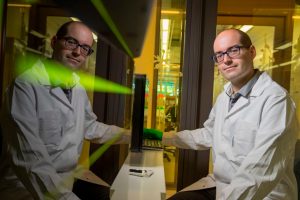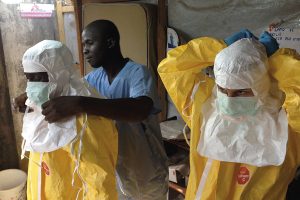Search
At the time of publication of this issue, we are incredulously, insecurely, and helplessly witnessing a situation only comparable to that experienced in both twentieth-century World Wars. A global pandemic, which has once again placed the human species before a scenario that is as unprecedented and unknown as it is unpredictable.
The biochemist Vicent Pelechano, together with his team in Sweden, has developed a simple, fast, and affordable method to detect the SARS-CoV-2 virus in patients. He explains in this interview.
Losing sight of climate change in the media could run the risk of strengthening the consensus for a narrative in favour of economic growth that leaves environmental issues in the background.
Although the coronavirus is a microbe, the author uses two animal analogies to explain the sudden and unexpected (or otherwise) appearance of phenomena such as COVID-19, but also other «unexpected» disasters of an economic, social, or political nature.
In addition to protective isolation, enhanced medical capacity, safer sociality and health oriented economic stimulus, we will need to turn our hearts, hands, and minds to reweaving and strengthening the complex and vital social web.
Most probably, the current coronavirus1 pandemic represents the uncertain epilogue of an epidemiological period marked by the renewed prominence of the infectious disease in the last decades of the twentieth century
Next time we could be facing an even deadlier virus than SARS-CoV-2. Now is the perfect time to start working.
Knowing the detailed genomes of viruses and their phylogenies allows us to understand the origin of the outbreak. Was it a zoonosis from bats or were other hosts involved? Where did this fatal transition occur? What is the rate of change of the virus?
The tragedy of the 2014 Ebola epidemic in West Africa was exacerbated by World Health Organization (WHO) rhetoric that depicted medical personnel as saviors of an irrational and emotional public.
This article examines the figure of the scientist in such fictional narratives and what these characterizations indicate about public attitudes toward science in our contemporary world.
- 1
- 2










